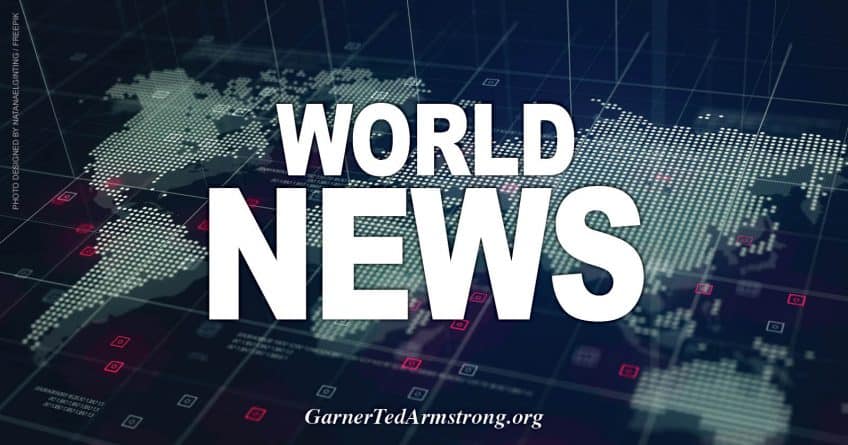Among the surest signs of a society in deep crisis are persistent blackouts, the inability of a government to supply its citizens with power adequately and consistently. Outages signify neglect of critical infrastructure, warped energy markets, and regulatory corruption.
But what makes the extended, repeated blackouts in Venezuela over the past 20-plus years so extraordinary, and such a perfect metaphor for the darkness that has enveloped the Venezuelan people since Hugo Chavez came to power, is the Bolivarian Republic’s immense oil reserves. The story of how an energy powerhouse short-circuited over and over again presents a tragic and cautionary tale, told sensitively but assuredly in William Neuman’s excellent new book on Venezuela’s anguish, no fewer than eight chapters of which are simply titled “Blackout.”
A veteran New York Times reporter who served as the paper’s Caracas-based Andes bureau chief during the pivotal mid-2010s, Neuman applies a keen journalistic eye, ear, and pen to the forlorn scenes he encounters, alternating smoothly between vignettes and broader themes.
Political dysfunction is the norm, not the exception, in Venezuela. President Rafael Caldera became both the first Venezuelan president to take office peacefully from a predecessor of a different party in 1969 and the last to hand over power in the same manner, in 1999, to Chavez. Chavez held the presidency until his 2014 death, when another strongman, Nicolas Maduro, occupied his mentor’s seat. Both demagogues exploited existing divisions, and both engineered the utter collapse of a once-great country. At the height of the economic crisis in 2018, inflation surged to an astronomical 130,000%. Between 2013 and 2019, according to the International Monetary Fund, Venezuelan GDP plummeted by a staggering 65%. By 2020, more than 5 million Venezuelans, out of a total population of 30 million, had fled the country.
“The causes of the division were historical, but the rift deepened with Chavez,” Neuman reasons. “He had mined it and encouraged it until it became part of the landscape, something that people took as a given.” The dictator worsened these fissures and distracted from his own failure by recalling the country’s supposedly magnificent history. “The more they become disenchanted with the Republic,” Venezuelan historian Tomas Straka once wrote, “the more they seek refuge in the glorious past.”
And even though the so-called golden age of Simon Bolivar was heavily tarnished by civil war, racial strife, and economic dislocation, Chavez masterfully invoked its vicissitudes. “Chavismo came to exist in a kind of eternal present, a circular time alive with links to the heroic past,” Neuman writes. “It all became part of the same sacred calendar.”
But what specifically caused the country’s downfall?
“It’s not so much that Venezuela produced oil,” Neuman tartly observes, “it’s that oil produced Venezuela.” Indeed, the Bolivarian Republic has suffered for nearly a century from what economists label the “resource curse,” or the vicious economic, monetary, and fiscal cycle resulting from the discovery of an abundant natural resource exported to the world.
On top of the inflationary pressures produced by an oil-centric economy, the boom-and-bust nature of the market buffeted Venezuelan economic fortunes, often violently. Chavez, and then Maduro, compounded the country’s economic woes by manipulating the currency and imposing draconian price controls, both of which yielded a black-market economy that further undermined the legitimate one. Widespread government corruption, mining syndicates operating like the mafia, and a fundamental tragedy of the commons have progressively immiserated the population. Even malaria is making a comeback, with some 400,000 cases reported in 2019 alone.
Neuman also narrates the chaotic and ultimately unsuccessful attempt of the Venezuelan opposition to assume power lawfully in January 2018 following a corrupt election in which Maduro fraudulently “won” another term. The opposition-dominated National Assembly, led by a hitherto unknown 35-year-old legislator named Juan Guaidó, invoked an article of the Venezuelan Constitution that purportedly authorized the head of the National Assembly to serve as a “caretaker president” in a 30-day transitional period.
An enthusiastic Trump administration seized this opportunity and galvanized support among Latin American countries, including Colombia, Brazil, Chile, and Paraguay, all of which recognized Guaidó as interim president. They hatched a plan to empower Guaidó to import vast quantities of humanitarian aid across the border from Colombia in a show of force, bizarrely kicked off by a charity concert hosted by billionaire Richard Branson, that would at once inspire everyday Venezuelans and daunt Maduro’s shock troops. But the scheme failed badly, thwarted by Venezuelan forces loyal to the regime blocking trucks on the narrow bridge connecting the two countries. Similar attempts by the opposition during the following months also proved to be little more than ill-conceived publicity stunts, and a bumbling armed incursion of American-trained mercenaries foundered.
“When you’re talking about who is the majority, who has the recognition, the dictatorship has been defeated,” Guaidó told Neuman in a July 2019 interview. The problem, though, is that much like Venezuelan currency, the opposition’s victory existed only on paper. Neuman characterizes the early 2018 boomlet as a bubble: “Guaidó meant well, but he had promised quick results — instant gratification — and there was nothing to show for it.”
More poignant still are the tales of Venezuelans from all walks of life that Neuman chronicles. For instance, he interviews a human rights lawyer kidnapped by the FAES, Maduro’s secret police, who refused to beg for his life, instead defiantly telling his captors: “You told me that I’m a dead man. What else do you want? You’re talking to a corpse.”
Another story comes from Margelis, a hotel manager in a town outside of Maracaibo, who witnessed the utter devastation of her workplace by looters during one of the blackouts, when sinks, toilets, and everything down to the copper wires were snatched in a frenzy. “How can you go out and destroy something that isn’t yours?” she asked Neuman. “You need a bed, take the bed. … But so much destruction. I think that the worst harm that has occurred in this country is to society.”
And then there are the true believers, like Chacon, a government bookstore manager in Guayana City, who despite subsisting on two meals a day and losing 15 pounds to malnutrition, insisted to Neuman: “Chavez helped the people. … I tell you sincerely from my heart,” adding that Maduro “continued Chavez’s legacy.” Chacon instead pins Venezuela’s agony on the “hegemonic powers” supposedly pulling the strings.
Neuman is unequivocal when he states that “the responsibility for the disaster in Venezuela lies with Maduro, and Chavez before him. … They own the wreck of Venezuela.” Thanks to their depredations, in a country where light — luz — means power, the people sorely, tragically lack sufficient quantities of both.
Michael M. Rosen is an attorney and writer in Israel and an adjunct fellow at the American Enterprise Institute.
Source: https://www.washingtonexaminer.com/opinion/how-venezuela-was-destroyed-from-within
[Disclaimer]








